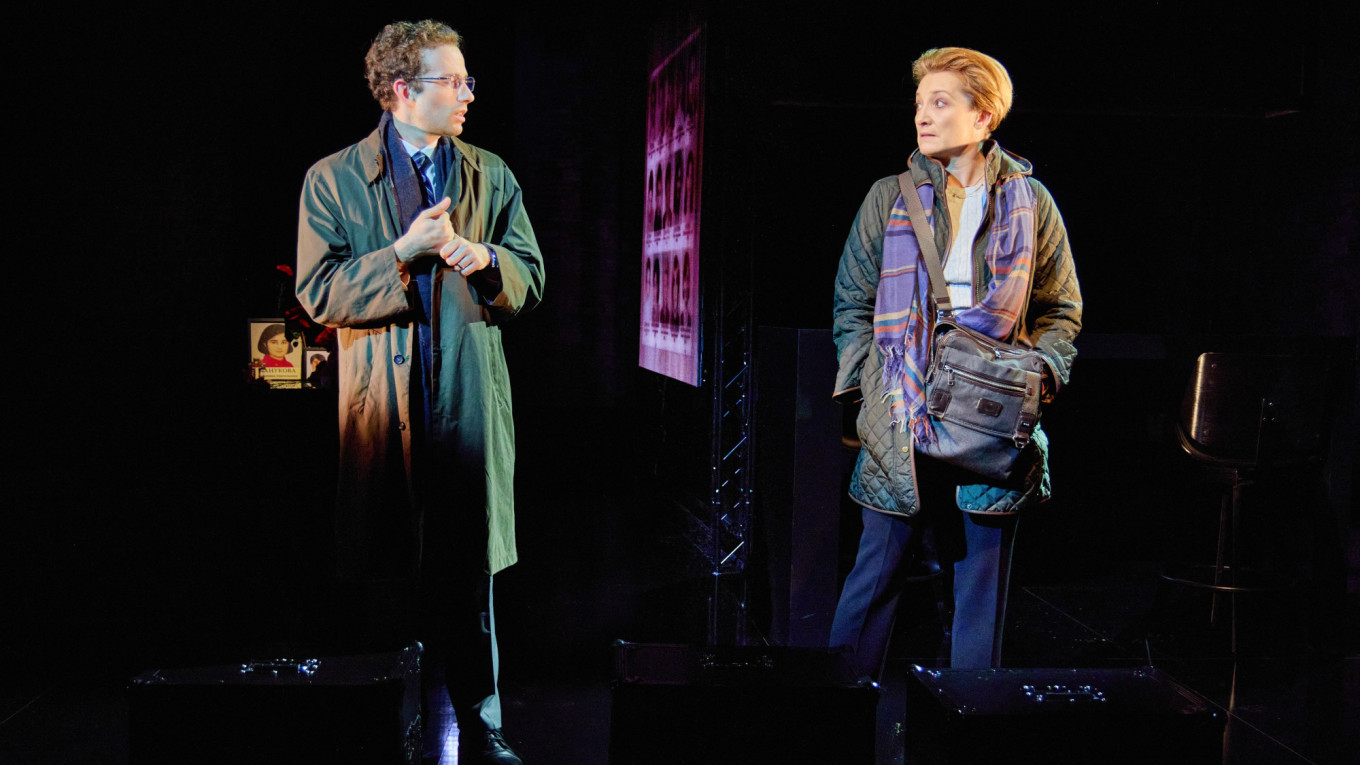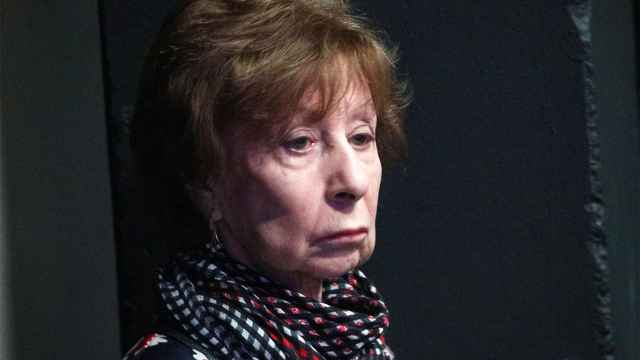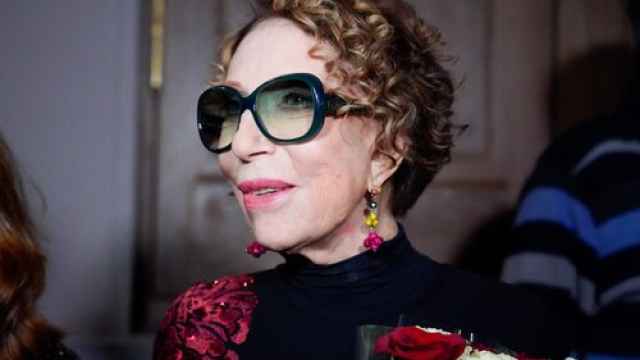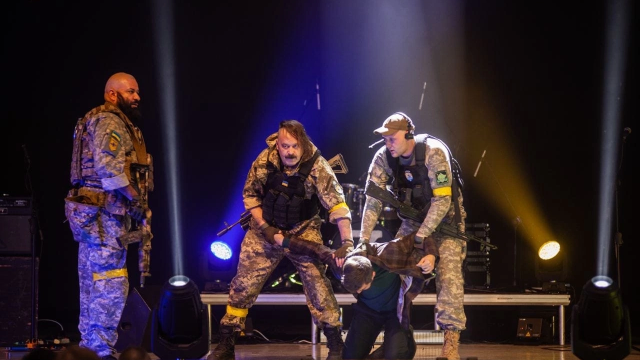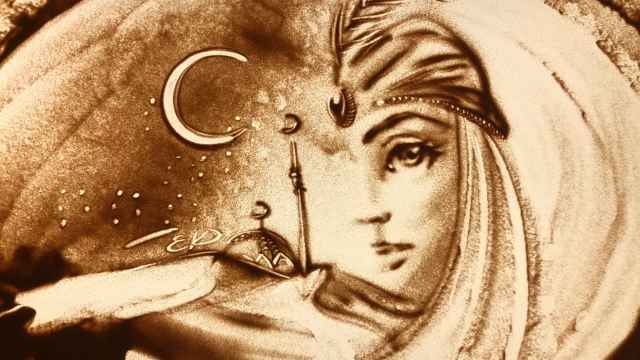"Vladimir" is already the second play this year in New York that focuses on Putin and his era. Earlier in 2024, Broadway featured "Patriots," written by Peter Morgan, the creator of the award-winning Netflix series "The Crown," and directed by Rupert Goold. That play ran for several weeks, centering on Boris Berezovsky's rise and fall from power.
"Vladimir" is a new play by Erika Sheffer, whose previous works include “Russian Transport” and “The Fundamentals.” Sheffer often explores Russian and post-Soviet themes, focusing on identity and moral dilemmas. The play is directed by Tony Award-winning Daniel Sullivan, known for producing both drama and comedy.
Unlike “Patriots,” “Vladimir” is a work of fiction rather than a documentary. Despite its title, Putin himself never makes an appearance. Yeltsin does, however, in a rather comical prologue where he delivers his famous December 1999 resignation speech, leaving the country in the hands of a successor.
“There is a good man waiting to lead you, a strong, courageous individual who will shape our future. And so, in accordance with our constitution, I have signed a decree handing over the duties of the president to my prime minister Vladimir Vladimirovich Putin.” This will be the only time Putin’s name is actually mentioned in the play.
In the prologue, Yeltsin clutches a glass of hard liquor, needing to use the restroom before going on air. His daughter insists there’s no time, forcing Yeltsin to relieve himself in a vase — a detail that feels almost too believable.
The rest of the play offers little comic relief. After the prologue, it fast-forwards to election night in 2004, when Putin secures a second term in a landslide. The early scenes focus on Raisa (played by Francesca Faridany), a journalist, and her boss Kostya (played by Norbert Leo Butz), the editor of a fictional independent newspaper called Moscow Novosti.
Viewers familiar with contemporary Russian history would immediately recognize the feisty reporter as Anna Politkovskaya and the newspaper as Novaya Gazeta. Both the character of Raisa and the real-life Politkovskaya share a deep commitment to exposing human rights abuses, especially during the Chechen wars. Politkovskaya’s fearless reporting made her a target of government persecution and death threats, culminating in her assassination in 2006.
Kostya appears to be a fictional character, as Politkovskaya's real-life editor, Nobel laureate Dmitry Muratov, never left Novaya Gazeta. Kostya symbolizes the fate of many post-Soviet media managers who moved between independent and state media, often striving to maintain some semblance of journalistic integrity.
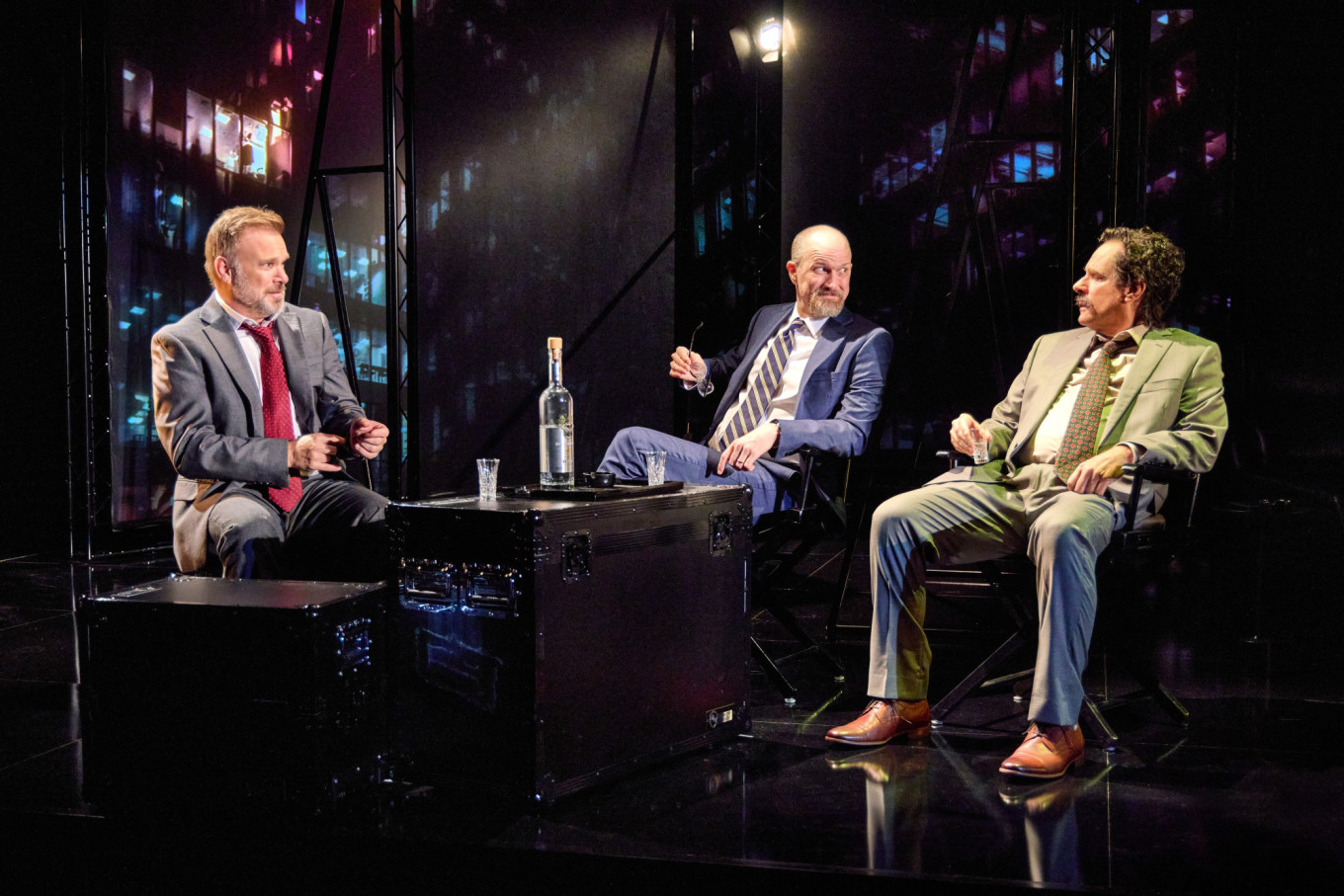
Later we are introduced to the second protagonist: a tax lawyer, Yevgeny (played by David Rosenberg), who is based on Sergei Magnitsky. Magnitsky uncovered massive corruption involving government officials, which led to his imprisonment and subsequent death in 2009 under suspicious circumstances. Magnitsky’s death provoked international outrage and resulted in the passage of the Magnitsky Act, which sanctions human rights abusers.
In reality, Politkovskaya and Magnitsky never crossed paths. However, the playwright uses creative license to intertwine their thematically linked stories into a broader critique of the Putin era.
The fictional framework allows the playwright more freedom in crafting the characters’ words and actions. While watching “Patriots,” I often found myself thinking, "Berezovsky surely didn’t say that" or "Abramovich wouldn’t have done that." In contrast, "Vladimir" blends fictional events seamlessly with real ones.
The second part opens with the Beslan massacre, where 334 people perished as a result of a school siege by Islamic terrorists. The scene holds particular resonance as 2024 marks the 20th anniversary of the tragedy.
Once Yevgeny starts working with Raisa, the play picks up pace, with their secretive meetings resembling a spy thriller. Yevgeny is focused on unraveling a financial conspiracy, while Raisa is recovering from a poisoning — echoing Politkovskaya’s real-life poisoning on a plane to Beslan.
Yevgeny works for Jim (played by Jonathan Walker), an American investor. In the scenes with Jim, a clever theatrical device is used: all actors start talking in Russian-accented English. At first, Jim wants to get to the bottom of the tax evasion scheme, but later decides that keeping his business is more important.
In the final scene, Raisa is on a book tour in New York City. Addressing the audience, she says: “Everyone asking, my friends, my agent, people like you in the audience, they ask: Are you afraid to go back? And they don’t say of who. They don’t use his name. Only, how can you go back? Aren’t you afraid? And it makes me so… mad, that one man should have such power. One. Small. Not great intellectual, not insightful, only talent is finding ugliness and knowing how to use it.”
The play avoids using Putin's name, except in the prologue and the title, perhaps as a commentary on the suppression of free speech in Russia. At the same time, the playwright highlights how Putin dominates the narrative even in his absence. “Vladimir” is both a recounting of the events of the early naughts and a stark warning of how authoritarianism can creep in incrementally, eroding freedoms and silencing dissent.
“Vladimir” is playing at the New York City Center through Nov. 10: https://www.nycitycenter.org/pdps/2024-2025/vladimir/
A Message from The Moscow Times:
Dear readers,
We are facing unprecedented challenges. Russia's Prosecutor General's Office has designated The Moscow Times as an "undesirable" organization, criminalizing our work and putting our staff at risk of prosecution. This follows our earlier unjust labeling as a "foreign agent."
These actions are direct attempts to silence independent journalism in Russia. The authorities claim our work "discredits the decisions of the Russian leadership." We see things differently: we strive to provide accurate, unbiased reporting on Russia.
We, the journalists of The Moscow Times, refuse to be silenced. But to continue our work, we need your help.
Your support, no matter how small, makes a world of difference. If you can, please support us monthly starting from just $2. It's quick to set up, and every contribution makes a significant impact.
By supporting The Moscow Times, you're defending open, independent journalism in the face of repression. Thank you for standing with us.
Remind me later.


